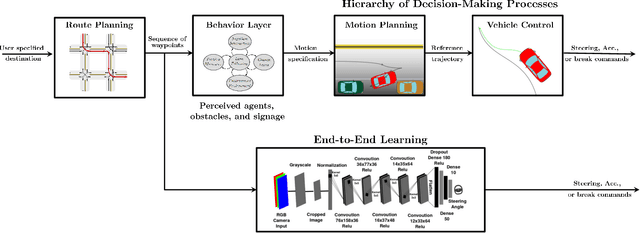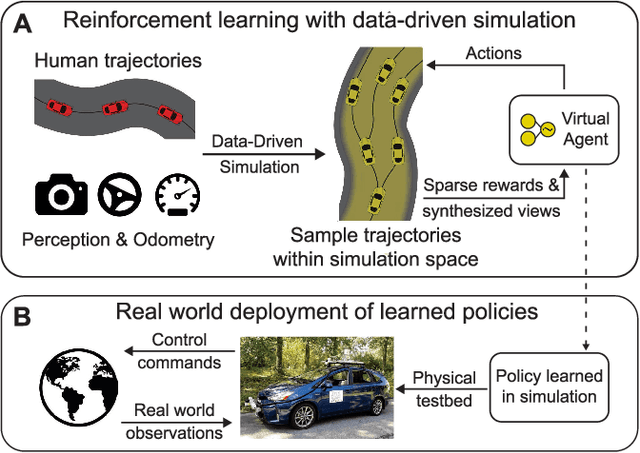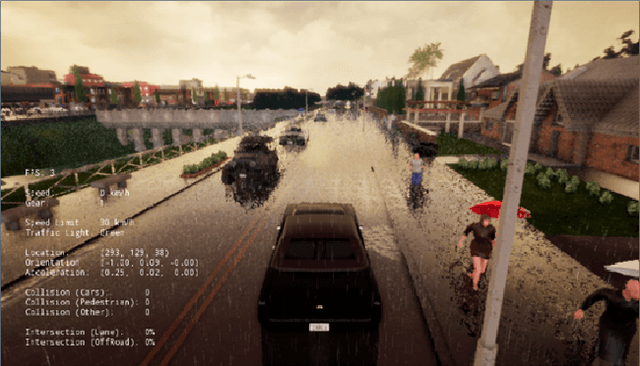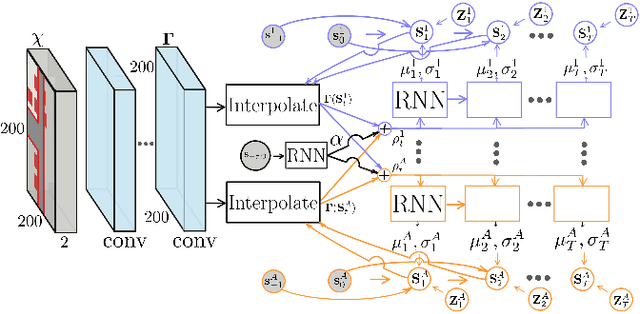A Survey of Deep Reinforcement Learning Algorithms for Motion Planning and Control of Autonomous Vehicles
Paper and Code
Jun 01, 2021



In this survey, we systematically summarize the current literature on studies that apply reinforcement learning (RL) to the motion planning and control of autonomous vehicles. Many existing contributions can be attributed to the pipeline approach, which consists of many hand-crafted modules, each with a functionality selected for the ease of human interpretation. However, this approach does not automatically guarantee maximal performance due to the lack of a system-level optimization. Therefore, this paper also presents a growing trend of work that falls into the end-to-end approach, which typically offers better performance and smaller system scales. However, their performance also suffers from the lack of expert data and generalization issues. Finally, the remaining challenges applying deep RL algorithms on autonomous driving are summarized, and future research directions are also presented to tackle these challenges.
 Add to Chrome
Add to Chrome Add to Firefox
Add to Firefox Add to Edge
Add to Edge